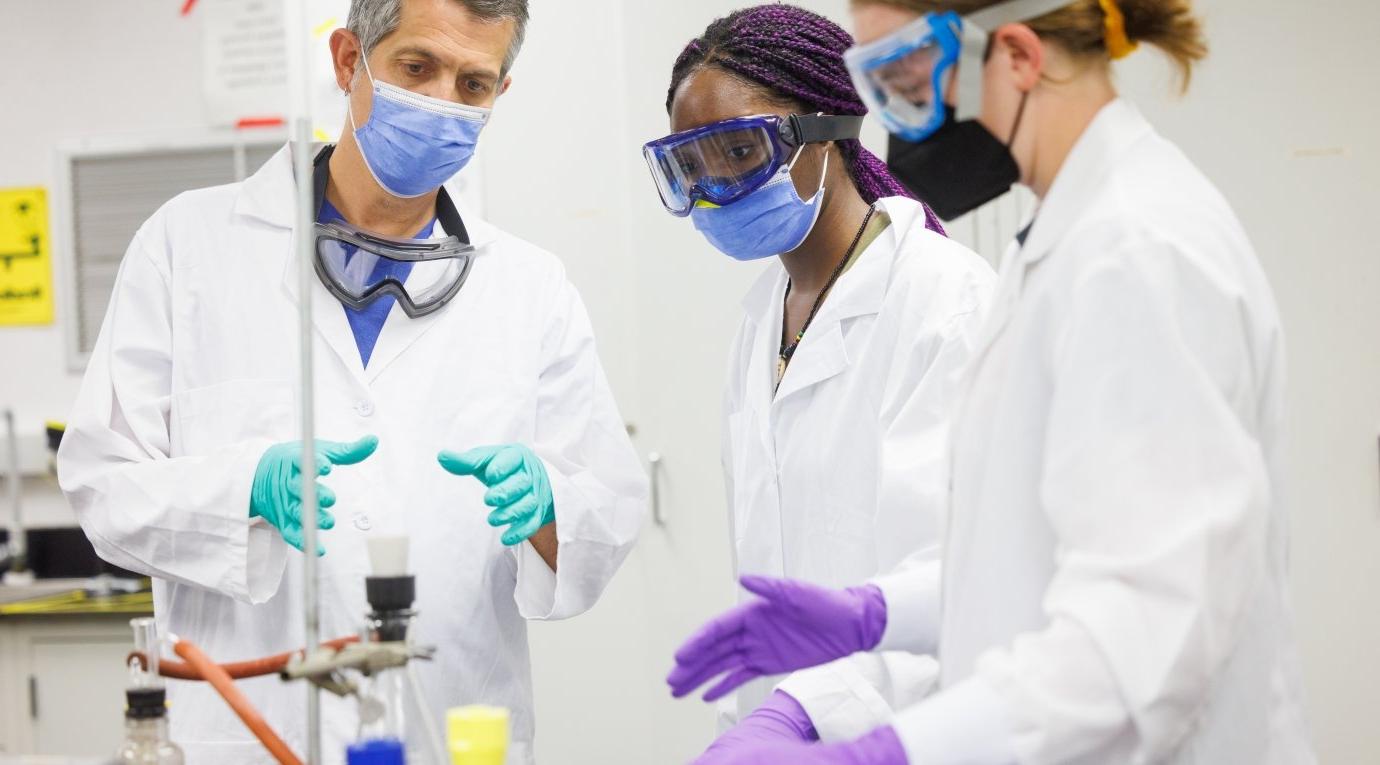Chemistry
Chemistry is the study of the interactions between the atoms, molecules, and ions that make up matter. As a Chemistry major, you’ll learn how materials combine and change – and you'll witness some exciting reactions and transformations.

About Our Chemistry Program
- Learn how to apply Chemistry, Physics, and Math to solve chemical problems.
- Develop a broad understanding of the various branches of Chemistry and a mastery of the skills and techniques used by chemists.
- If you have an interest in research, teaching, or medicine, Pitzer’s Chemistry program might be for you.
- As a Chemistry major, you’ll take classes and conduct research with world-class faculty from Pitzer and Scripps Colleges through our Department of Natural Sciences.
- Take advantage of labs, classrooms, offices, and even a community greenhouse in the 65,000 square-foot Nucleus, our brand-new science building.
At a Glance
- Bachelor of Arts



